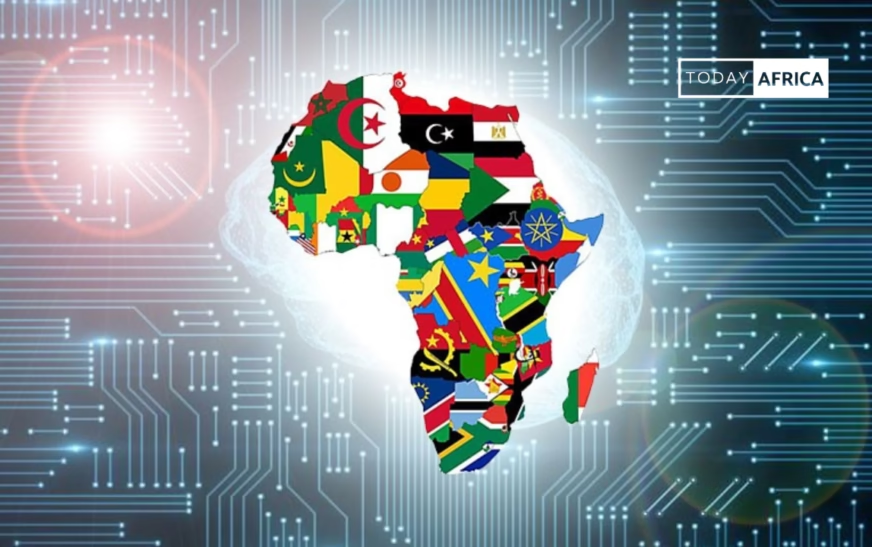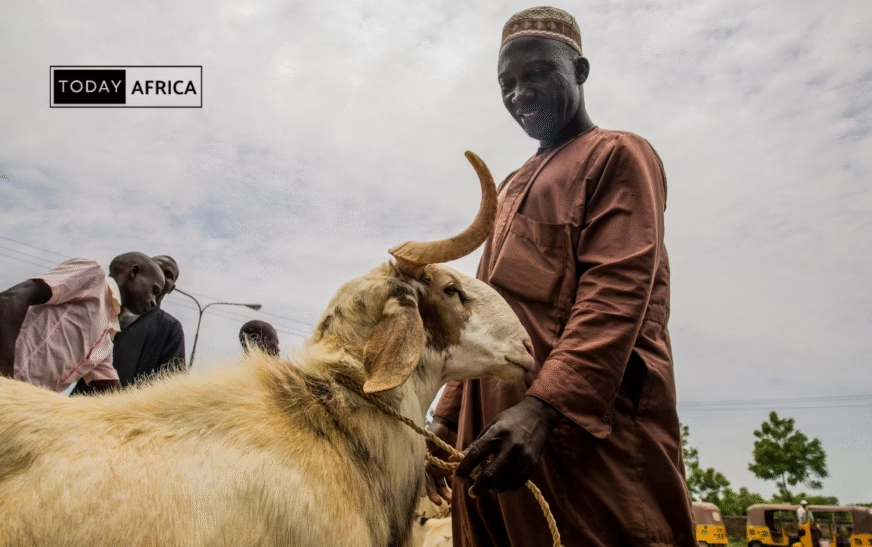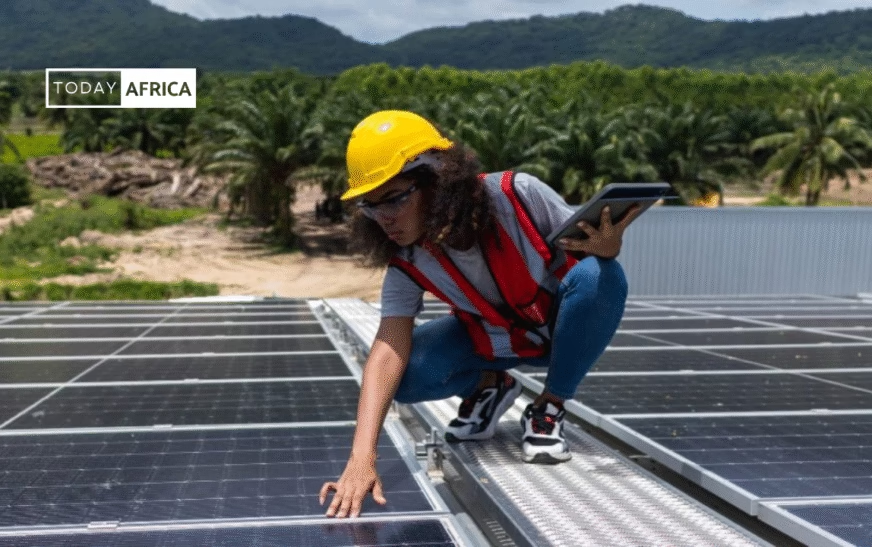Africa’s digital economy is booming. Tech funding in Africa reached over $2.2 billion in 2024, and major cities are emerging as innovation epicenters. Many hubs are driven by youthful populations, rising internet use, and mobile-first solutions.
According to Dealroom’s 2025 Global Tech Ecosystem Index, Lagos (Nigeria) was the world’s fastest-growing tech ecosystem, producing five unicorns and expanding its ecosystem value 11.6× since 2017. Johannesburg (South Africa) and Kampala (Uganda) also rank in the top 20 globally.
Overall, tech hubs in Africa are converging points for investors, developers, and policymakers, driving home-grown solutions in fintech, agritech, healthtech, and logistics.
11 Tech Hubs in Africa
1. Lagos, Nigeria
Nigeria’s megacity Lagos is the continent’s largest startup center. It’s home to over 400 startups (about 88% of Nigeria’s total), and has spawned fintech giants like Flutterwave, Paystack, and Interswitch. Yaba – Lagos’s “Silicon Valley” has major hubs like Co-Creation Hub (CcHUB) and Ventures Park.
Government initiatives also fuel growth: Lagos’ Lagos State Development Plan (LSDP) 2052 and the KITE innovation program are explicitly designed to nurture entrepreneurship.
Read Also: Ayoola Ogunyomi on Bridging the Investment-Exit Gap in Africa’s Startup Ecosystem
This supportive environment, plus Lagos’s 24 million population, attracts local and international investors. For example, Lagos has produced 5 unicorns (each >$1 b valuation) to date, and its ecosystem value has climbed over tenfold in recent years.
- Key sectors and startups: Fintech dominates (Paystack, Flutterwave, OPay, Paga, Carbon), followed by e-commerce (Jumia, Konga) and edtech/healthtech (Andela, uLesson, Helium Health).
- Accelerators & support: Local incubators like CcHUB, Google’s Launchpad Africa, and corporate programs (e.g. Bank of Industry’s Tech Hubs) provide mentoring and seed funding. The annual Lagos Startup Week and Art of Technology Conference also connect founders and investors.
- Infrastructure & talent: Lagos hosts tech parks (YabaTech City) and world-class universities (Unilag, Lagos State University). However, power outages and foreign-exchange volatility remain challenges. Still, with its huge domestic market and diaspora expertise, Lagos’s growth potential is enormous.
2. Nairobi, Kenya
Nairobi, dubbed “Silicon Savannah,” is East Africa’s innovation hub. Kenyan startups raised $638 million in 2024 – more than Nigeria or South Africa – capturing nearly 30% of all African startup funding.
Safaricom’s M-Pesa mobile-money platform was a pioneer, and today Nairobi is strong in fintech (Equity’s M-Kopa, Tala) and e-commerce (Twiga Foods, Sokowatch). It also leads in climate/clean tech (M-Kopa Solar, Kenya Climate Innovation Center projects).
Read Also: How to Build a Purpose Driven Business – Sylvia Wambui
The city benefits from early incubators like iHub and Nailab, and government programs (Kenya’s Digital Economy Blueprint, Konza Tech City project).
- Key sectors and startups: Fintech (Cellulant, Tala, Branch), agritech (Twiga Foods connects farmers and retailers), and health/education tech (MYDAWA pharmacy app, Eneza education platform). For example, Nairobi-based Ushahidi developed the crowdsourcing platform used worldwide.
- Investment & support: The government’s Kenya Vision 2030 and international investors have backed Nairobi’s tech parks. Incubators (iHub, Gearbox) and university labs (Strathmore iLab) train talent. Kenya’s well-developed fiber backbone and rising 4G/5G coverage aid connectivity.
- Challenges & growth: Nairobi faces high living costs and political risk (election cycles), but its strong venture climate and skilled workforce suggest continued growth. Dealroom notes Nairobi excels in fintech and clean-energy solutions.
3. Johannesburg & Cape Town, South Africa
South Africa’s mature economy anchors two key hubs: Johannesburg (the financial capital) and Cape Town (creative and tech industries). Johannesburg boasts a vast corporate sector and advanced infrastructure.
Startups there include digital banks and fintech (TymeBank, Ozow, VALR crypto exchange), insurtech (Pineapple) and entertainment/telecoms (Showmax, Liquid Telecom).
Read Also: How Buyiswa Twala is Reviving Dead Soil and Fighting Hunger in South Africa
Cape Town, often called “Silicon Cape,” is strong in fintech and agritech: notable firms include Yoco (POS payments), Aerobotics (AI-driven farming drones) and biotech startups.
- Key sectors and startups: Fintech (TymeBank, Ozow in JHB; Yoco, Jumo in CT), health and biotech (Cape Town’s biotech cluster like Rossgen, Pharma structures), and AI/cybersecurity (Cape’s cryptography and Air Traffic tech). Dealroom highlights Johannesburg’s rich startup diversity and notes Cape Town’s focus on fintech, cybersecurity and AI.
- Infrastructure & support: South Africa leads Africa in internet speed and has multiple tech parks (e.g. JHB’s SENTECH, CT’s Bandwidth Barn). Universities (UCT, WITS) churn out engineers, and events like the Silicon Cape Summit connect innovators. Government programs (e.g. the Digital Innovation Facility by DST) offer grants to high-tech firms.
- Challenges & potential: Both cities suffer power-loadshedding, which can disrupt startups. Economic growth is moderate. Nevertheless, South African cities have reliable legal and financial institutions, making them a magnet for VCs. With strong local tech communities (LaunchLab, Silicon Cape) and being the launchpad to global markets, these hubs remain top of investors’ lists.
4. Accra, Ghana
Accra is rapidly emerging in West Africa. Government support, like the National Digital Acceleration Project (with World Bank backing), is boosting infrastructure.
Private programs, notably MEST Africa (an incubator/seed fund founded in Accra) and the Ghana Tech Hub, nurture entrepreneurs. Ghanaian startups have attracted attention: mPharma (medicine supply chain) and ExpressPay (payments) are gaining scale.
Read Also: She is a Finance Graduate, Now Building a Healthtech Startup – Onkgopotse Khumalo
Flutterwave, Nigerian-founded, has a major office in Ghana, and education tech (mPedigree, Rekindle Learning) is on the rise. Dealroom/360Moz notes Accra’s “rapidly growing ecosystem” with hubs like MEST.
- Key sectors and startups: Fintech (ExpressPay, Zeepay), agritech (Farmerline), healthtech (mPharma), and edtech (Afromedialab’s Utiva coding school). The FinTech Summit Accra and Ghana Banking Awards showcase the sector.
- Investments & support: Tech investment events (Tech in Ghana forum) and growing local VC networks are active. Diaspora Ghanaians have founded funds and accelerators here. Ghana’s relative economic stability (compared to neighbors) and English language advantage make Accra attractive.
- Challenges & outlook: The cedi’s volatility and inflation are issues, but Accra benefits from the 5G rollout by MTN and strong literacy rates. Observers note Accra’s focus on fintech, agritech, and healthtech sectors aligned with Ghana’s development priorities. With this momentum, Accra looks poised to keep growing as a regional tech hub.
5. Dakar, Senegal
Dakar is rising fast among French-speaking countries. Senegal’s Digital Senegal 2025 strategy explicitly aims to make the country “a hub for innovation in West Africa”.
In Dakar, the government supports tech through programs like Dakar Digital City (a planned tech park) and investments in connectivity.
Startups include fintech like Wave Mobile Money (pan-African money transfer, acquired by Blockchain.com) and InTouch, and logistics/e-commerce players like Yobante Express.
Read Also: Márcia Dima – The Name “N’toko” Just Popped into My Mind and Now It’s a Brand!
Disrupt Africa confirms Dakar’s ecosystem is strengthening, driven by mobile adoption and supportive policy shifts.
- Notable companies: Mobile money (Wave, Yobante), online marketplace (Jumia Senegal), and “ICT4D” social-impact startups. Fintech is especially active – Wave alone processed millions of transactions regionally.
- Infrastructure & talent: Dakar benefits from fiber deployments (the new ACE undersea cable), and the French influence ensures good technical education (universities like Gaston Berger). It also hosts the continent’s first Green Energy Park.
- Challenges & prospects: Senegal’s economy is smaller than Nigeria or Kenya, and French language adds a barrier, but Dakar’s hubs compensate by targeting regional markets. A recent commentary notes Senegal’s push to quadruple the ICT sector’s GDP contribution by 2025. With strong government backing and growing VC interest (e.g. through Seedstars Dakar), Dakar is one to watch in Francophone Africa.
6. East Africa: Kampala, Uganda & Kigali, Rwanda
Kampala and Kigali are notable smaller hubs leading their regions. Kampala’s tech scene has matured quickly: local founders point to booming mobile connectivity and fintech growth.
Notable Ugandan startups include mobile lending apps (M-Omulimisa) and Zuri Health (pharma logistics). Co-working spaces like Hive Colab foster local innovators.
Meanwhile, Kigali is driven by visionary government plans (Vision 2020/2050) and a friendly business climate. The Kigali Innovation City project (a government-anchored tech park) and broad 4G coverage have made it attractive.
Read Also: Can Organic Fertilizer Save Africa’s Farms? Solomon Ssekamanya Thinks So
Kigali hosts African offices of Google and Africa50, and companies like SafeMotos (ride-hailing) and Yapili (home care gig platform) operate here.
- Ecosystem features: Both cities have incubators (Outbox Hub in Kampala, kLab in Kigali) and strong diaspora networks. Education is emphasized: Rwanda graduates ~50,000 STEM students annually, many absorbed into tech sectors.
- Focus areas: Kampala’s startups often target local market needs (mobile payments, agri-information apps). Kigali’s scene focuses on ICT for smart cities, healthtech (e.g. Babyl’s telemedicine in Rwanda), and fintech (BK Tech House by Bank of Kigali).
- Growth factors: Both nations offer tax breaks and innovation laws (e.g., Rwanda’s Smart Rwanda and Startup Acts). Dealroom notes that both are gaining recognition for inclusive digital ecosystems. Though populations are smaller, these cities leverage stability and cross-border trade to punch above their weight, making East Africa’s tech future a pan-regional story.
7. Cairo, Egypt
With over 100 million people, Cairo anchors the Arab world’s biggest tech market. Egypt’s startup sector has exploded – VC investment jumped 176% in 2021 to ~$491 M – and by 2024, Egypt regained its spot as Africa’s 2nd-largest VC recipient (behind Nigeria).
The city’s strengths include fintech (Fawry, valU), e-commerce (Souq/Amazon Egypt, Halan), and ride-sharing (Swvl).
Read Also: Why Fana Haregot is Building More Than a Business, She’s Building Hope
Cairo’s tech ecosystem benefits from government initiatives like FinTech Egypt (a Central Bank program that raised $796 M in 2023 and the TIEC tech incubators (formerly the Ministry of ICT’s Tech Innovation & Entrepreneurship Center). Annual events like RiseUp Summit draw global investors.
- Key startups: Healthtech (Vezeeta, a doctor booking platform), education (Talent 360), and AI (Instabug). Cairo’s universities (AUC, Cairo University) produce many engineers.
- Infrastructure & support: The Smart Village tech park outside Cairo hosts multinationals and startups, and the government’s Digital Egypt vision deploys widespread 4G/5G networks. The dollar devaluation and bureaucracy pose challenges, but a large domestic market and access to MENA markets compensate.
- Trends: Fintech in Cairo is thriving – Egypt’s CBE even licenses banks exclusively for digital services. The World Bank-backed startup fund ‘Egypt Ventures’ is injecting capital into early-stage Cairo firms. All this, combined with entrepreneurs’ global experience, makes Cairo arguably North Africa’s most mature tech hub.
8. Casablanca & Rabat, Morocco
Morocco’s tech ecosystem has made strides. In the 2025 Global Startup Ecosystem Index, Morocco ranked 9th in Africa, up from 12th, overtaking Senegal and Uganda.
Casablanca leads the charge: its ecosystem jumped 42 spots globally to rank 317th. Startups like Chari (B2B e-commerce for retailers) and Inyad Health (healthtech) are active, alongside fintech (Wafacash) and AI ventures.
Read Also: How Ismael Belkhayat is Transforming Traditional Retail in French-speaking Africa
Rabat, the political capital, hosts many incubators and offices of regional bodies (MITC, ANAPEC), strengthening Casablanca’s momentum.
- Government initiatives: Morocco’s Digital Morocco 2025 plan and Morocco Startup Act provide tax breaks and support. Casablanca’s New Development Model encourages public-private tech partnerships. A new Casablanca FinTech Park (CFP Bank/Bank Al-Maghrib) is now Europe’s largest fintech campus.
- Education & talent: Major universities (UM5, Hassan II) and STEM training programs supply talent. French and Arab connectivity links also help internationalization.
- Outlook: With stable governance and as a gateway between Europe and Africa, Moroccan hubs attract investors (recently attracting VCs like Novastar and international firms). Growth in Casablanca suggests Morocco could soon challenge the leading English-speaking hubs.
9. Tunis, Tunisia
Tunisia’s long-standing tech ecosystem is catching new wind. The Digital Tunisia 2020 initiative and a supportive Startup Act have fostered innovation.
Tunis is home to North Africa’s first tech associations (Tunisian Startups Association) and host to events like Meet up Business (MUB). Notable Tunisian startups include AI firm Instadeep (recently acquired by BioNTech) and Webedia (digital media).
Read Also: Lumbie Mlambo, the Entrepreneur Using Water to Empower Women & Girls in Africa
The country’s strong French and Arabic ties, plus a highly educated youth, underpin the ecosystem. The same StartupBlink report that ranked Morocco 9th placed Tunisia around 10th in Africa.
- Focus areas: Tunisian entrepreneurs emphasize AI, software, and e-commerce, reflecting the Innovation Focus noted by ecosystem studies. There’s also growing interest in fintech (Cartes Bancaires Maghrébines) and agritech (Berex).
- Support: Incubators like Cogite and Tunisian Startups connect founders, while programmes (ANPR, FOPRODEX) offer seed funding. The government backs startups through ministries and through education (TechnoPark).
- Challenges: Tunisia’s political and economic instability is a concern, and funding volumes lag larger markets. However, its strategic location and multilingual workforce give it potential. With new incubators (e.g. USATech Park) and international partnerships (EU-funded programs), Tunis is likely to remain on investors’ radar.
Conclusion
Across Africa, these hubs share common drivers – youthful talent, improving connectivity, and growing capital flows. They also face similar hurdles: building reliable electricity and broadband, and navigating regulatory challenges.
Nevertheless, each city has unique strengths. Lagos and Nairobi are continental leaders (fintech and e-commerce), Johannesburg/Cape Town leverage mature markets and finance, and Cairo unites North Africa’s tech growth.
Smaller hubs like Accra, Dakar, Kampala, Kigali, and Casablanca are surging with targeted niches (mobile money, agritech, AI, etc.).
As investors increasingly look to Africa for innovation, these cities, supported by rising venture capital and government programs, are poised to shape the next wave of tech growth on the continent.
Leave a comment and follow us on social media for more tips:
- Facebook: Today Africa
- Instagram: Today Africa
- Twitter: Today Africa
- LinkedIn: Today Africa
- YouTube: Today Africa Studio
















